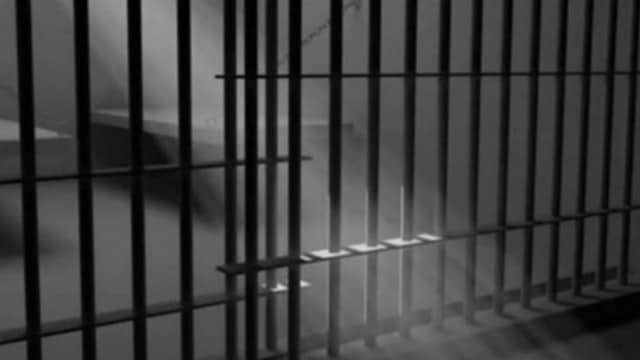Granted bail over five months ago in a murder case by the Bombay High Court, a Mumbai-based woman continues to remain in jail, unable to complete her bail formalities, which require her to furnish a personal bond of Rs 50,000 with sureties—someone who can comply with legal requirements to guarantee that she will remain present for the trial after she is released. She is among many who remain in jail after getting bail, owing to the non-compliance of bail conditions, usually arranging cash or sureties.
Alerted about people languishing behind bars despite being granted bail—sometimes for as little as Rs 5,000—the Supreme Court, acting on a suo motu petition, stressed the need for interventions by various authorities, including the District Legal Services Authority (DLSA). In 2023, the court suggested that data be filled on the e-prison software-working then in 1,300 jails in the country-on the date of the grant of bail and the date of release by the prison officials.

“If the accused is not released within seven days of the date of grant of bail, the software would automatically generate a flag/reminder and simultaneously the email would be sent to the office of the concerned DLSA so that they can find out the reason for non-release of the accused,” the Supreme Court had said.
Authorities say that from the issue of filling the data on a real-time basis to difficulties in implementing interventions like the Under Trial Review Committee (UTRC) or the Central Government’s Support to Poor Prisoners Scheme, a resolution has been hard to find.
In 2022, then Maharashtra deputy chief minister Devendra Fadnavis, who is now the chief minister, said that there were 1,641 such inmates who were behind bars despite the grant of bail, and who were to be offered legal and financial help.
No accurate, real-time data available
A request for an updated figure did not get a response from the prison department, but officials said that accurate, real-time data was not available and was not updated on the e-prison software, owing to issues including limited manpower in the prison department.
“For instance, the Arthur Road jail has over 3,500 prisoners when the official capacity is less than 1,000. The real-time updation of data may not be possible on a daily basis, but through physical verification, information on such prisoners is sent to the DLSA and the UTRC. In many cases, even after alerts about such prisoners behind bars, the process takes a long time, as courts may not be willing to allow their release on a personal bond due to the nature of the offence, or the apprehension that the undertrial will not remain present for the trial in the future,” said an official.
Story continues below this ad
A DLSA official said that during UTRC meetings, which include judges, the DLSA secretary, police and prison representatives, such prisoners are identified, and a report is called for from NGOs or probation officers on their financial condition, to understand their inability to complete the bail formality.
“In cases where it is possible to arrange the funds, NGOs working with prisoners help financially. In other cases, courts are requested to allow the prisoner to be released on a personal bond, with time granted to arrange for surety once they are released as even family members are unable to arrange for the money in some cases,” the official said.
The Central Government’s Support to Poor Prisoners scheme has the district collector as the nodal authority to release funds for such prisoners, but the process too has been cumbersome and slow, officials said.
A report released earlier this month, titled Legal Aid for Undertrial Prisoners: Report of the Fair Trial Programme in Pune and Nagpur, highlights the need to set up a formal mechanism to collate data of such undertrial prisoners on a real-time basis.
Story continues below this ad
Through the Fair Trial Fellowship programme—which began in 2019 as part of an initiative by the Maharashtra Government and the Azim Premji Foundation and was implemented through NALSAR’s (National Academy of Legal Studies and Research) Square Circle Clinic—social work and legal fellows are appointed to regularly visit prisons in the two cities, and coordinate with the prison department and the DLSA to help undertrial prisoners in the legal processes including bail and trial. The fellows part of the programme have worked with 4,649 prisoners, handling 5,783 cases from 2019, either through one-time or detailed interventions. The report states that some of these clients were unable to complete their bail formalities despite grant of bail.
The report, released by NALSAR, says that despite the Supreme Court’s direction to trial courts to furnish the bail orders to the accused through the prison on the date of the order, this process is not followed and the e-prison database also lacks relevant information due to delays in manually updating data from the judicial register. It says that compiling the list of such undertrials requires collation and verification from multiple sources like courts portals, prisons as well as physical verification of court records.
“The complexity of the data and process and the lack of consolidated database either in prison or in the courts leads to error in compilation, requiring multiple time-intensive checks by full-time skilled personnel which the system lacks,” the report says.
Medha Deo, the programme director, said there was a need for a formal mechanism to coordinate between the courts and the prison department for ready-to-refer information for quicker interventions.
Story continues below this ad
“In such cases, social work fellows part of the programme have provided last-mile coordination by reaching out to other organisations for bail support, awaiting them at the prison gate when they are released to inform them of the consequences of failure to attend court dates as well as helping them reach home,” she said.
Pleading guilty as a means to release
The report also flags that delays in bail and struggles in compliance thereafter, persuades prisoners to “plead guilty” as a suggested “quick route out of prison”. “The experience of the program reveals that many undertrials in petty offences who are unable to comply with bail conditions plead guilty to secure early releases due to institutional compulsion, both through individual factors such as persuasion by fellow clients, DLSA, systemic factors of delays in trial and onerous bail orders,” the report says.
Since the inception of the programme till August 2024, 134 of its detailed intervention clients have pled guilty—53 per cent from Nagpur and 47 per cent from Pune-mostly in petty cases of theft. While pleading guilty is considered a “win-win” to reduce the pendency of cases, and the burden on jails, and improve the conviction rate, the report expresses concerns.
“This disposal comes at the cost of violation of fundamental rights to fair trial and undertrials are not apprised of the consequences of pleading guilty, especially due to changes brought about by the Bharatiya Nyaya Sanhita (BNS) through enhanced punishment for second or subsequent offence (Section 303(2)) and the addition of Section 112 penalizing petty organised crime,” the report says.
Story continues below this ad
An official said that when informing undertrials about pleading guilty, they are told about the consequences and their crime record of being “convicted” once they have accepted guilt. “Oftentimes, due to the conditions in overcrowded jails and the desperation to be released, undertrials choose to plead guilty; thinking first of the immediate and not of the consequences later.”

































